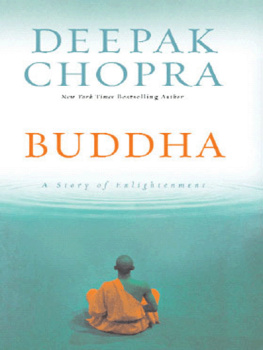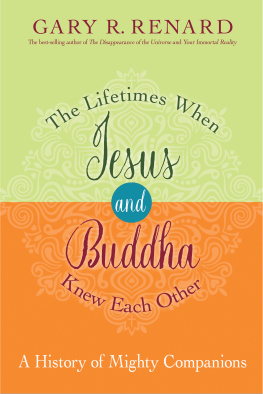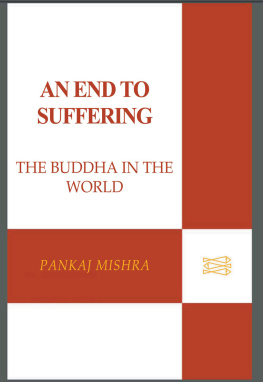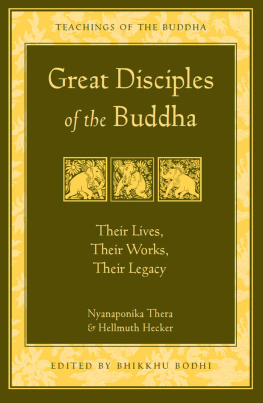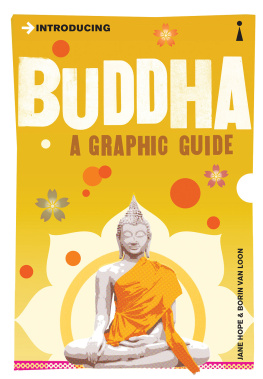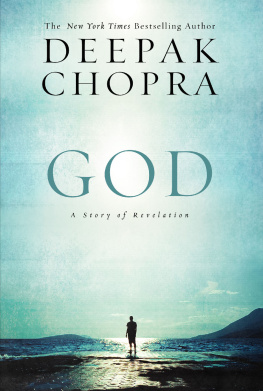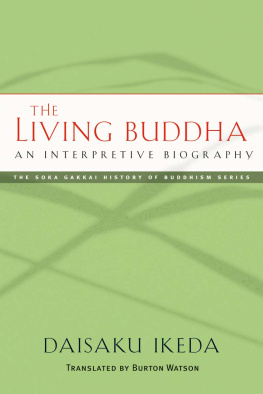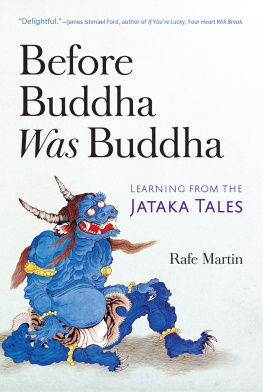Whoever sees me sees the teaching.
I n writing this book, I took a deep breath and created new characters and incidents in the life of one of the most famous people who ever lived. Famous, but still very obscure. I wanted to bring Buddha out of the mists of time, to fill him out in flesh and blood while still preserving his mystery. Fact blended into fantasy centuries ago in the story of the prince who became a living god. Or is god the very thing he didnt want to be? Was his deepest wish to disappear from the material world, remembered only as an inspiration of perfection?
The Buddha story, as it gathered momentum for two millennia, became chock-full of miracles and gods that got stuck onto its surface. Speaking about himself, Buddha never mentioned miracles or gods. He held a doubtful view of both. He showed no interest in being revered as a personality; none of his many sermons mentions his family life or gives much personal information at all. Unlike Christ in the New Testament, he certainly didnt see himself as divine.
Instead, he saw himself as someone who is awake, which is what the word Buddha means. Thats the person Ive tried to capture in this book. Here in all his mystery is the principal human being who ever gained enlightenment, who spent his long life trying to wake up the rest of us. Everything he knew, he knew from arduous, sometimes bitter experience. He went through extreme sufferingalmost to the deathand emerged with something incredibly precious. Buddha literally became the truth. Whoever sees me sees the teaching, he said, and whoever sees the teaching sees me.
I wrote this book as a sacred journey, fictionalized in many of its externals but psychologically true, I hope, to what the seekers path feels like. In all three phases of his lifeSiddhartha the prince, Gautama the monk, and Buddha the Compassionate Onehe was as mortal as you and I, yet he attained enlightenment and was raised to the rank of an immortal. The miracle is that he got there following a heart as human as yours and mine, and just as vulnerable.
The Kingdom of Sakya, 563 BCE
O ne crisp spring day King Suddhodana turned in his saddle to survey the battlefield. He needed a weakness to exploit, and he was confident the enemy had left one for him. They always did. His senses were closed to everything else. Screams of the wounded and dying were heightened by the hoarse commands of his officers bellowing orders and calling on the gods for help. Torn by hooves and elephants feet, cut by iron-rimmed chariot wheels, the land oozed blood as if the earth itself were mortally wounded.
More soldiers! I want more soldiers now!
Suddhodana didnt wait for anyone to obey. If any man within the sound of my voice runs away, I will kill him personally!
Charioteers and infantry moved toward the king, battered figures so filthy with fighting they could have been demiurges fashioned from the mud of the field.
Suddhodana was a warrior king, and the first thing to know about him is this: he mistook himself for a god. Along with his army, the king would kneel in the temple and pray before he went to war, but he put no trust in divine help. Leaving the gates of the capital behind, Suddhodana turned his head for one last look at home. But as the miles lengthened from Kapilavastu, his mood changed. By the time he came to the battlefield, its roiling activity and the smells that assaulted his nostrilsstraw and blood, soldiers sweat and dying horsescarried Suddhodana into another world. It smothered him completely in the belief that he could never lose.
The present campaign wasnt of his doing. Ravi Santhanam, a northern warlord along the Nepalese border, had taken one of Suddhodanas trade caravans in a surprise attack. Suddhodanas retaliation came almost immediately. Even though the warlords men had the advantage of the high ground and home terrain, Suddhodanas forces steadily chewed into their holdings. Horses and elephants trampled over the fallen, dead or still alive but too weak to escape. Suddhodana guided his mount next to the belly of a rearing bull elephant, narrowly avoiding the massive feet as they plunged downward. Half a dozen arrows had pierced it, driving the beast into a frenzy.
I want a new line of chariots, close file! He had seen where the enemy front was exhausted and ready to buckle. A dozen more chariots pulled up in advance of the infantry. Their metal-bound wheels clattered across the hard ground. The charioteers had archers standing behind them who unleashed arrows into the warlords army.
Make a moving wall, Suddhodana shouted. I want to crush their line.
His charioteers were experienced veterans; they were hard-faced, merciless men. Suddhodana rode slowly before them, ignoring the strife only a short distance away. He spoke quietly. The gods command that there can be only one king. But I swear that I am no better than a common soldier today, and you are as good as kings. Each man here is part of me. So whats left for the king to say? Only two words, but they are the two that your hearts want to hear. Victory. And home! Then his command cracked like a whip.
All togethermove!
Both armies rushed screaming into the breach like opposing oceans. Violence brought contentment to Suddhodana. His sword whirled as he split a mans head with a single blow. His wall was advancing, and if the gods willed it, as they had to will it, the enemy forces would open, one corpse at a time, until Suddhodanas infantry moved in, a tight wedge gliding forward on enemy blood. The king would have scoffed at anyone who denied that he was at the very center of the world.
A T THAT HOUR Suddhodanas queen was being carried in a litter through the depths of the forest. She was ten months pregnant, a sign, the astrologers said, that the baby would be extraordinary. But in Queen Mayas mind nothing was extraordinary except the anxiety that surrounded her. She had decided, much too impetuously, to travel back to her mothers home to have her baby.
Suddhodana hadnt wanted to let her go. It was the custom for new mothers to go home to deliver, but he and Maya were inseparable. He was tempted to refuse, until in her guileless way Maya asked his permission in front of the assembled court. The king couldnt refuse his queen publicly, despite the dangers involved.
Who will accompany you? he asked with an edge of harshness, hoping to frighten her away from this foolhardy plan.

